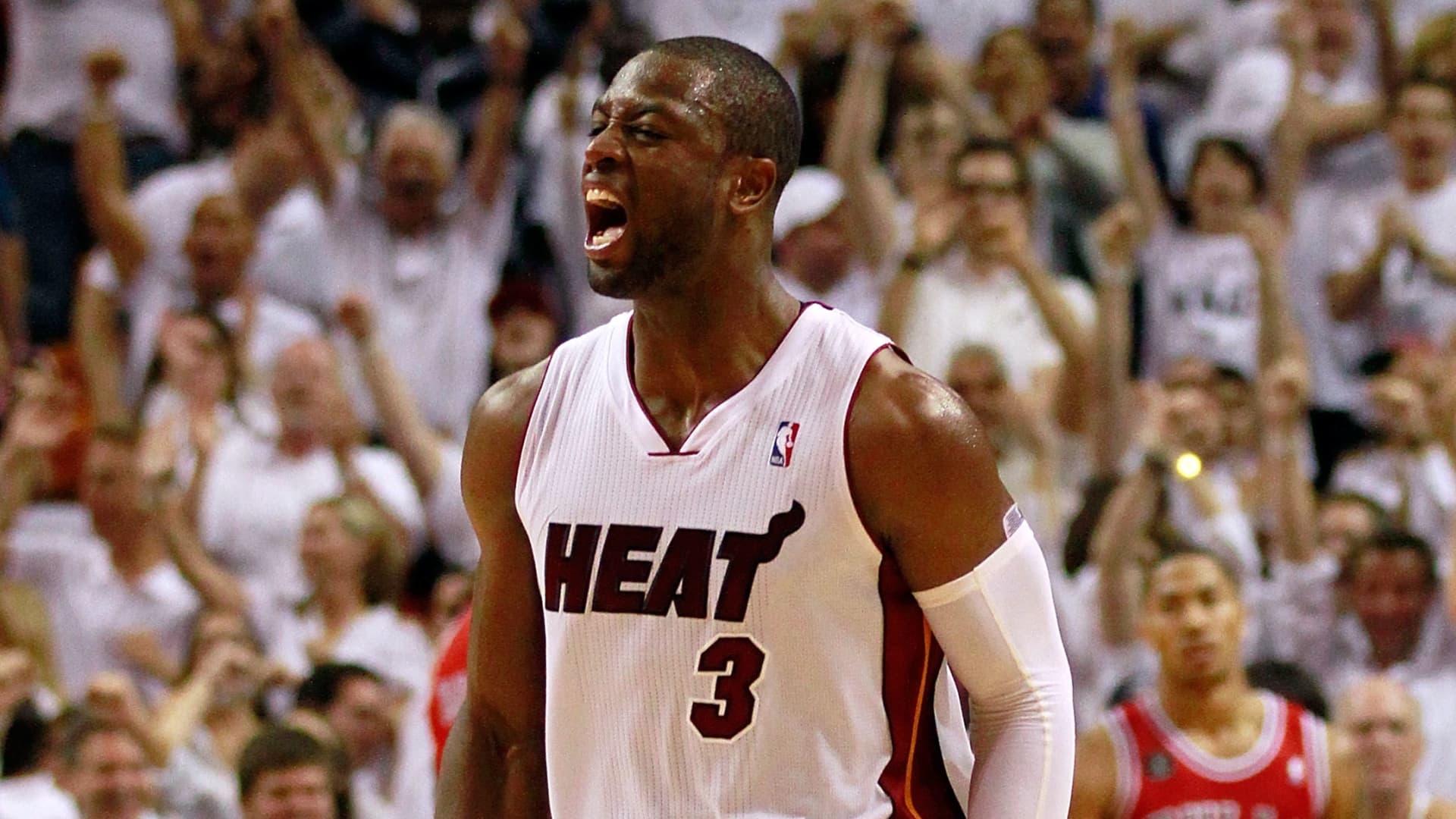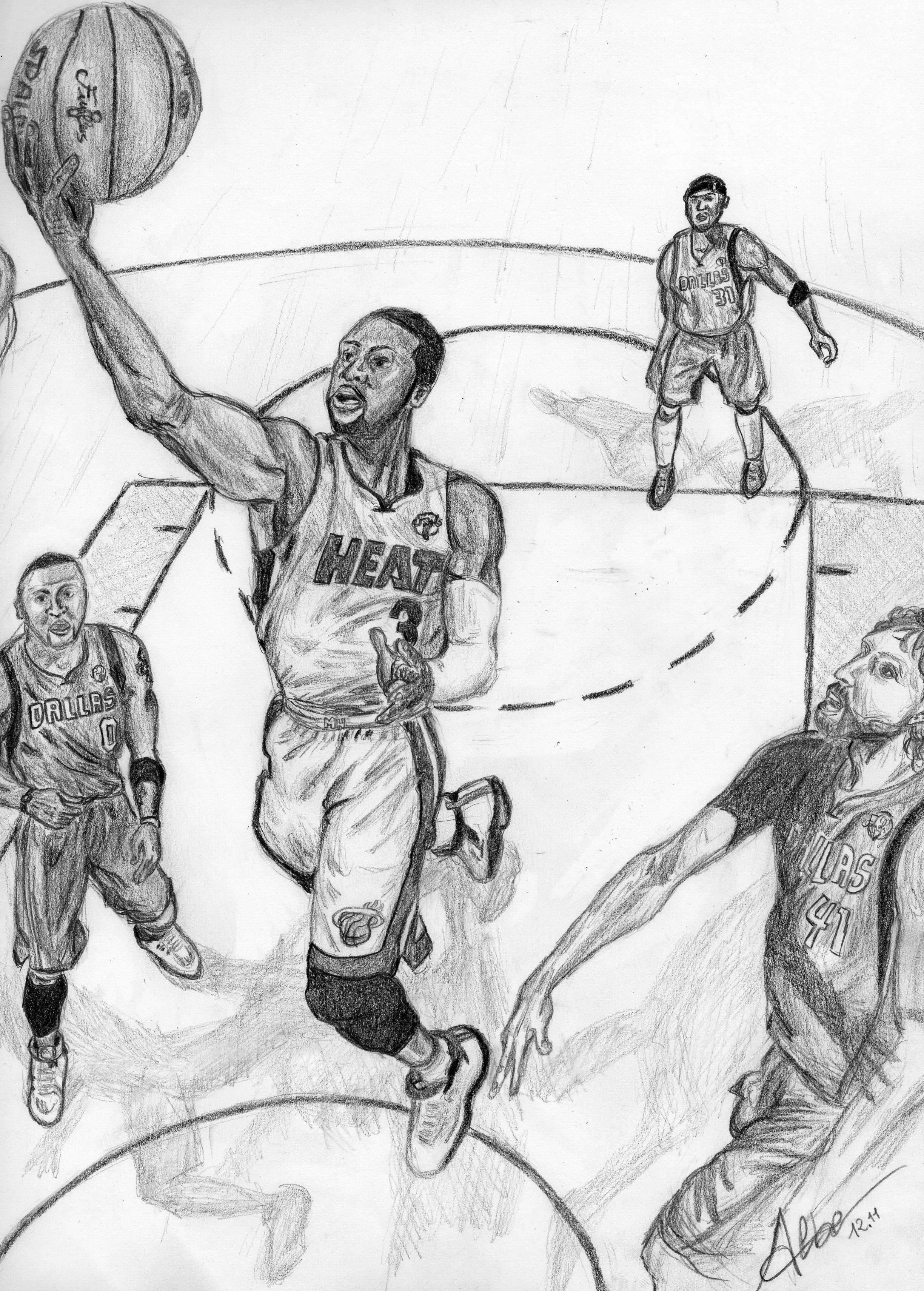Dwyane Wade's Average In 2011 Finals: The Untold Story Behind The Stats
Let’s dive straight into it—Dwyane Wade’s performance in the 2011 NBA Finals is one of the most talked-about chapters in basketball history. It wasn’t just about numbers; it was about heart, grit, and determination. If you’re here, chances are you’re dying to know what Dwyane Wade’s average stats were during those intense games. But trust me, this story goes way deeper than just points per game.
When people talk about the 2011 NBA Finals, they often focus on Dirk Nowitzki and the Dallas Mavericks. But let’s not forget that Dwyane Wade was right there in the mix, battling it out with everything he had. This series wasn’t just about winning or losing; it was about showing the world what true championship-caliber players are made of.
So, buckle up because we’re about to take a trip down memory lane. We’ll break down Dwyane Wade’s average stats from the 2011 Finals, explore the highs and lows of his performance, and uncover some fascinating details that might surprise even the biggest Heat fans.
- Baby Suji Tele Video Link A Deep Dive Into The Phenomenon Thats Capturing Hearts Worldwide
- Maligoshik Leak The Untold Story Risks And What You Need To Know
Table of Contents
- Dwyane Wade's Average Stats in the 2011 Finals
- Biography: Who is Dwyane Wade?
- How Did the Miami Heat Perform as a Team?
- Analyzing the Opponent: The Dallas Mavericks
- Key Highlights of Wade's Performance
- The Low Points: What Went Wrong?
- Wade's Impact Beyond the Numbers
- Comparing Wade's Stats with Other Finals Performances
- The Legacy of Dwyane Wade
- Final Thoughts: Lessons Learned
Dwyane Wade's Average Stats in the 2011 Finals
Alright, let’s get to the meat of the matter. Dwyane Wade’s average stats in the 2011 NBA Finals were impressive, but they didn’t quite tell the whole story. Over the six-game series against the Dallas Mavericks, Wade averaged 26.5 points per game, 7.1 rebounds, and 4.3 assists. Those numbers sound solid, right? But there’s more to unpack here.
One thing to keep in mind is the context. Wade was dealing with injuries, and the pressure of leading the Heat alongside LeBron James and Chris Bosh was immense. Despite all that, he still managed to put up these kinds of numbers. That’s no small feat, folks.
Breaking Down the Numbers
Here’s a quick breakdown of Wade’s averages in the 2011 Finals:
- Hisashi Ouchi Real Image The Untold Story And Exclusive Details
- Is Seo In Guk Married Unveiling The Truth Behind The Guk Phenomenon
- Points per Game: 26.5
- Rebounds per Game: 7.1
- Assists per Game: 4.3
- Field Goal Percentage: 45.1%
- Free Throw Percentage: 74.1%
Now, let’s be real—these stats don’t scream "failure." But at the time, Wade faced a lot of criticism for not doing enough to lead the Heat to victory. Was it fair? We’ll explore that later.
Biography: Who is Dwyane Wade?
Before we dive deeper into the 2011 Finals, let’s take a moment to appreciate the man behind the numbers. Dwyane Wade, affectionately known as "Flash," is one of the greatest shooting guards in NBA history. Born on January 17, 1982, in Chicago, Illinois, Wade grew up in a tough neighborhood but used basketball as his escape.
Wade’s journey to the NBA wasn’t easy. He played college basketball at Marquette University, where he developed into a star player. In 2003, he was drafted fifth overall by the Miami Heat, and the rest, as they say, is history.
Here’s a quick look at some of his key achievements:
- 3x NBA Champion (2006, 2012, 2013)
- 12x NBA All-Star
- NBA Finals MVP (2006)
- 8x All-NBA Team Selection
But beyond the accolades, Wade is known for his leadership, work ethic, and unwavering dedication to the game. Let’s not forget his signature dunks, crossovers, and clutch performances that made him a fan favorite.
Dwyane Wade's Biodata
| Full Name | Dwyane Tyrone Wade |
|---|---|
| Date of Birth | January 17, 1982 |
| Place of Birth | Chicago, Illinois, USA |
| Height | 6'4" (1.93 m) |
| Position | Shooting Guard |
| NBA Draft | 5th Overall Pick in 2003 by the Miami Heat |
How Did the Miami Heat Perform as a Team?
Now, let’s shift our focus to the Miami Heat as a whole. The 2011 Finals were supposed to be their coronation moment, but things didn’t go according to plan. The Heat were led by the Big Three: LeBron James, Dwyane Wade, and Chris Bosh. On paper, they looked unstoppable. But basketball, as we all know, is more than just talent.
Over the six-game series, the Heat averaged 94.7 points per game, which was decent but not enough to overcome the Mavericks’ relentless offense. Dirk Nowitzki and company were on fire, and the Heat just couldn’t find a way to slow them down.
Key Factors in the Heat's Performance
So, what went wrong? Here are a few factors that contributed to the Heat’s loss:
- Injuries: Wade was dealing with knee issues, which affected his explosiveness.
- Pressure: The weight of expectations was massive, especially on LeBron James, who struggled in clutch moments.
- Defense: The Heat’s defense wasn’t consistent enough to shut down Nowitzki and the Mavs.
It’s easy to point fingers, but the reality is that basketball is a team sport. Even the best players need help to win championships.
Analyzing the Opponent: The Dallas Mavericks
Let’s not forget the other side of the story—the Dallas Mavericks. They were led by Dirk Nowitzki, who had one of the greatest Finals performances in NBA history. The Mavs were a well-oiled machine, with players like Jason Kidd, Tyson Chandler, and Jason Terry stepping up when it mattered most.
Nowitzki averaged 26.0 points, 9.7 rebounds, and 2.0 assists in the series, earning the Finals MVP award. His ability to hit shots from anywhere on the floor was simply unstoppable. The Heat’s defense had no answer for him.
What Made the Mavericks So Dangerous?
The Mavericks were more than just Dirk. They had a balanced roster with players who could contribute in different ways. Here’s what made them so dangerous:
- Dirk Nowitzki: The ultimate closer and a scoring machine.
- Tyson Chandler: Dominant on the glass and a defensive anchor.
- Jason Terry: A spark off the bench and a clutch shooter.
The Heat had their hands full, and they simply couldn’t match the Mavs’ intensity and execution.
Key Highlights of Wade's Performance
Despite the loss, Dwyane Wade had some standout moments in the 2011 Finals. Let’s take a look at a few highlights:
- Game 1: Wade scored 28 points and added 6 rebounds in a thrilling Game 1 victory.
- Game 4: He dropped 32 points and grabbed 8 rebounds in a crucial win for the Heat.
- Game 6: Even in defeat, Wade put up 34 points and 6 rebounds, showing his heart and determination.
These performances showcased Wade’s ability to rise to the occasion, even when things weren’t going his way. He wasn’t afraid to take the big shots, and that’s what made him such a special player.
The Low Points: What Went Wrong?
Of course, no story is complete without addressing the low points. Wade faced criticism for his shooting efficiency and decision-making in certain games. In Game 2, for example, he shot just 9-for-23 from the field, and in Game 5, he struggled with turnovers and missed opportunities.
But let’s not forget that Wade was playing through pain. His knee issues affected his explosiveness and ability to attack the rim with the same ferocity he was known for. It’s easy to criticize in hindsight, but being a superstar in the NBA means dealing with scrutiny every step of the way.
Wade's Impact Beyond the Numbers
Numbers only tell part of the story. Dwyane Wade’s impact on the 2011 Finals went beyond points, rebounds, and assists. He was the emotional leader of the Heat, the guy who kept the team together during tough times. His leadership and veteran presence were invaluable, even if the results didn’t go their way.
Wade’s willingness to sacrifice and adapt for the betterment of the team was evident throughout the series. He knew when to step back and let LeBron take the lead, and he knew when to take matters into his own hands. That’s the mark of a true champion.
Comparing Wade's Stats with Other Finals Performances
To put Wade’s 2011 Finals performance into perspective, let’s compare it with some other legendary Finals performances:
- Michael Jordan (1991): 31.2 points, 6.6 rebounds, 11.4 assists.
- Kobe Bryant (2009): 32.4 points, 5.6 rebounds, 7.4 assists.
- LeBron James (2012): 28.6 points, 10.2 rebounds, 7.4 assists.
While Wade’s numbers don’t quite stack up to these all-time greats, they’re still impressive considering the circumstances. And let’s not forget that Wade had already won an NBA Championship and Finals MVP in 2006, so he wasn’t a rookie in these situations.
The Legacy of Dwyane Wade
When we talk about Dwyane Wade, we’re not just talking about stats or championships. We’re talking about a player who redefined what it means to be a superstar in the NBA. Wade’s legacy is built on his relentless work ethic, his ability to rise to the occasion, and his unwavering loyalty to the game.
Even after the 2011 Finals, Wade continued to dominate the league, helping the Heat win two more championships in 2012 and 2013. His impact on the game will be felt for generations to come, and his story serves as inspiration for young players around the world.
Final Thoughts: Lessons Learned
So, what can we learn from Dwyane Wade’s performance in the 2011 NBA Finals? First and foremost, we learn that basketball is a team sport, and no matter how great you are, you need help to win championships. Wade’s leadership, determination, and resilience were on full display during that series, even if the
- Livvy Dunne Passes Leaks The Untold Story Behind The Hype
- Chlo And Matt Onlyfans The Ultimate Guide To Their Rise Content And Impact

Dwyane Wade's Most Dominant NBA Finals Performances News, Scores

NBA champion Dwyane Wade shares advice on managing money

Dwyane Wade NBA Finals 2011 by Albe73 on DeviantArt